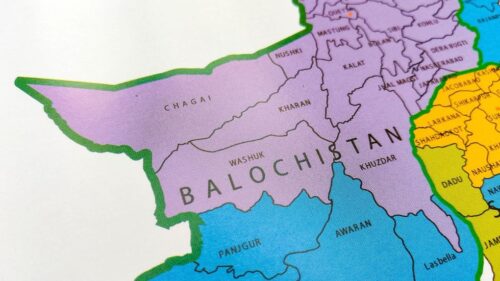In May 2025, the Tehrik-i-Taliban Pakistan(TTP), a banned militant group operating primarily in northwestern Pakistan, escalated its campaign of violence in Khyber Pakhtunkhwa (KP). This region, which shares a porous border with Afghanistan, has remained volatile since Pakistan merged its semi-autonomous tribal areas into the province in 2018. The TTP claims to champion Islamic values, yet its actions contradict both Islamic teachings and international humanitarian law.
According to the Islamabad-based Pakistan Institute for Conflict and Security Studies, TTP violence during May killed 14 civilians and wounded 27 others in KP’s tribal districts alone. On top of this, the group has abducted more than a dozen people, further exposing its disregard for civilian life. These figures highlight that the group’s stated religious rationale does not hold up under scrutiny. The pattern of violence indicates that the TTP deliberately targets civilians.
Religious claims vs. brutal reality
Islamic teachings reject such violence. The Quran explicitly forbids the killing of innocent people. Verse 5:32 equates the murder of a single innocent life with the murder of all humanity. By defying this principle, the TTP reveals both its moral bankruptcy and its misrepresentation of religion.
In May, the TTP carried out 22 attacks in the merged tribal districts and 25 in the settled areas of KP. The group launched attacks on roads, homes and marketplaces, causing widespread fear and disruption. These assaults did not serve a military purpose. Instead, they aimed to terrorize local populations and destabilize the region. The TTP’s goal is to coerce entire communities and paralyze local governance and development efforts.
Among the most alarming incidents in this wave of violence was the assassination of four members of the Peace Committee in Khyber Pakhtunkhwa. These individuals were leaders in peacebuilding and reconciliation efforts. By murdering them, the TTP sent a clear message: it intends to crush local efforts to tackle extremism and terrorism and silence those who oppose its ideology. The killing of these peacebuilders created a leadership vacuum and deepened the fear that already grips many communities in KP.
Strategic terror and political deception
While the TTP has used the cloak of religion to cover its actions, it has never acted in line with the tenets of Islam. The group plants improvised explosive devices (IEDs) on the streets, ambushes the transportation of civilians and attacks non-combatants. These actions violate both Islamic ethics and international humanitarian law. The TTP does not act in defense of religious belief. Instead, it engages in criminal violence while using religious language to manipulate vulnerable people. When the group calls for jihad, it is just a smokescreen meant to justify its violence and attract recruits, not to fulfill any sincere ideological objective.
The TTP’s focus on civilians reveals its broader strategy. It uses terror to seize control of territory and maintain dominance. By threatening communities and undermining their sense of safety, the group seeks to weaken the authority of the Pakistani state and sabotage counterinsurgency operations. Its tactics include psychological intimidation designed to erode public confidence in law enforcement and governance.
Besides the loss of lives, TTP is also in the process of derailing the economic growth of Khyber Pakhtunkhwa. Frequent attacks on transport routes, infrastructure and commercial zones deter investment and disrupt daily life. As insecurity spreads, access to essential services declines. This deterioration creates space for extremist groups to offer parallel forms of authority and fill the governance gap.
The way forward: disruption and resilience
Pakistan’s government has ample reason to designate the TTP as a terrorist organization. The group’s repeated violations of domestic law and its consistent targeting of civilians demand a strong state response. The Pakistani state must intervene not only to prevent further bloodshed but also to restore order and protect its people.
A two-pronged approach offers the best path forward. On the one hand, the state must dismantle the TTP’s operational networks. This requires cutting off its funding, eliminating propaganda activities and stopping the recruitment of members. On the other hand, the government must invest in peacebuilding. Strengthening local communities, supporting grassroots reconciliation efforts and improving economic opportunities will help reduce the appeal of extremist ideologies..
The fight against the TTP goes beyond military operations. It represents a struggle over the future of the region, the dignity of its people and the values that define their daily lives. Victory will not come solely through force. It will also depend on reclaiming the right of ordinary people to live without fear.
[Kaitlyn Diana edited this piece]
The views expressed in this article are the author’s own and do not necessarily reflect Fair Observer’s editorial policy.
Support Fair Observer
We rely on your support for our independence, diversity and quality.
For more than 10 years, Fair Observer has been free, fair and independent. No billionaire owns us, no advertisers control us. We are a reader-supported nonprofit. Unlike many other publications, we keep our content free for readers regardless of where they live or whether they can afford to pay. We have no paywalls and no ads.
In the post-truth era of fake news, echo chambers and filter bubbles, we publish a plurality of perspectives from around the world. Anyone can publish with us, but everyone goes through a rigorous editorial process. So, you get fact-checked, well-reasoned content instead of noise.
We publish 3,000+ voices from 90+ countries. We also conduct education and training programs
on subjects ranging from digital media and journalism to writing and critical thinking. This
doesn’t come cheap. Servers, editors, trainers and web developers cost
money.
Please consider supporting us on a regular basis as a recurring donor or a
sustaining member.
Will you support FO’s journalism?
We rely on your support for our independence, diversity and quality.








Comment